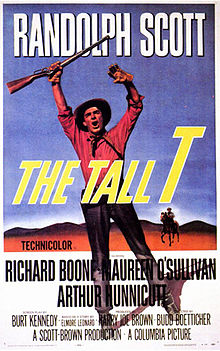
Aka Return of the Magnificent Seven. We got to stand along side of ’em so that someday they can stand alone. Fifty gunmen force all the men in a small Mexican village to ride off with them into the desert. Among the captured farmers is love-smitten Chico (Julián Mateos), who three years before was one of seven hired gunslingers responsible for ridding the village of the tyrannical bandit, Calvera. Chico’s wife, Petra (Elisa Montés), looks for the only other members of the band to survive: Chris (Yul Brynner) and Vin (Robert Fuller). She begs them to save the village once again. To replace the deceased members of the group, Chris buys the release of a brooding gunman Frank (Claude Akins) and famous bandit Luis (Virgilio Teixeira), held in the local jail, and recruits two more: sharpshooting ladies’ man Colbee (Warren Oates) and young cockfighter Manuel (Jordan Christopher). The men discover that the missing villagers are being used as slave labor to rebuild a desert village and church as a memorial to the dead sons of wealthy and psychotic rancher Francisco Lorca (Emilio Fernándes). In a surprise attack, the six gunmen force Lorca’s men to leave and prepare for a counterattack with Chico. The cowed farmers offer no help but the seven defenders successfully repel Lorca’s initial attack. Lorca then gathers all the men on his land to rout the seven men. The situation seems bleak until Manuel discovers a supply of dynamite which the seven use in a counteroffensive… Sure Chico is a friend of mine. But, hell, I don’t even know his last name. The first sequel to The Magnificent Seven is written by one (future) auteur, Larry Cohen and directed by another, Burt Kennedy, who already had form with a series of superb screenplays starting the previous decade. This is his fourth film as director and unfortunately he does not marshal the drama in the exciting way you’d hope. Part of the miracle of the legendary first film was the spot-on casting but only Brynner makes the cut here, and despite more or less the same premise and setting, with location shooting in Spain, Fernando Rey as the priest, and a rousing score – a re-recorded version of the original from Elmer Bernstein – this never hits the same notes of empathy or sheer bravado even with a wealth of decent banter and action. The avengers may have reassembled, but Fuller is no Steve McQueen and Mateos is no substitute for Horst Buchholz. What they really need is Eli Wallach to return as the consummate bad guy. In all the years I made my way with a gun, I never once shot a man just to see him fall







